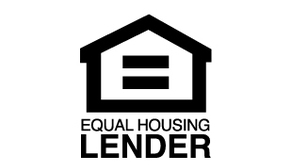The number of loan origination for multifamily units has continued to increase in recent years and it’s easy to see why. This growth trend is due in part to low-interest rates as well as the strong demand for rental properties by millenials. The Mortgage Bankers Association expects 2021 to be another record-breaking year with similar expectations projected for 2022.
Given this favorable environment, it makes sense to better understand if investing in a multifamily property is a smart move for you. There could be significant financial benefits from this type of investment, especially if you decide to live in the property while renting out the other units. The arrangement could be a real win/win all around!
 Is it Easy to Get a Mortgage for Multifamily Home?
Is it Easy to Get a Mortgage for Multifamily Home?
In cities such as Chicago, a number of large condo buildings are being converted to apartment complexes that are then rented by those looking for this type of housing. Multifamily properties with five or more units are considered commercial real estate. For lending purposes, commercial financing is more difficult to get and often requires larger down payments and shorter repayment schedules than residential mortgages. Developers, brokers, and investors tend to participate in these types of projects.
Multifamily properties with 2-4 units are considered to be residential buildings. Sometimes known as duplexes, triplexes, and fourplexes, 2-4 unit properties are essentially mini-apartment buildings. With separate dwellings contained within one property, a 2-4 unit can be occupied by different tenants. Although they may resemble mini apartment complexes, they are still considered residential properties. This is extremely important when it comes to financing options.
Long-term loans, such as mortgages, typically have different rates and regulations depending on whether you want to buy a commercial or residential property. Buying a residential property usually means the mortgage will have a lower interest rate than what is offered for a commercial loan. This means that taking out a multifamily mortgage on a 2-4 unit allows you to take advantage of the lower rate that a residential mortgage offers and still make a rental income if you decide to lease out the extra space to tenants.
Furthermore, the projected rental income from the additional units can often be taken into account when applying to a mortgage lender. Although you’ll need a deposit to qualify for a loan, the rental income from the 2-4 unit property can form part or all of your income in relation to the terms of the mortgage.
This makes purchasing a 2-4 unit building a more realistic option, particularly for millennials who may be in the early stages of their careers. If you choose to live in your new building, you may even find that the rental income the property produces covers the cost of your own mortgage repayments, essentially minimizing your monthly costs.
 How To Finance A Duplex Or Multi-Unit Home?
How To Finance A Duplex Or Multi-Unit Home?
There are numerous ways to finance a duplex or multi-unit home and the right option for you will depend on your personal circumstances. Before you make any decisions regarding property purchases or investments, it’s important to seek advice from a mortgage expert. By consulting an experienced mortgage advisor, for example, you can determine which options are available to you and what type of multi-unit mortgage would suit you best.
When buying a multi-unit property, you may decide to opt for a conventional mortgage. This is the same type of mortgage you would obtain if you were buying a single-family residence. If you want to buy a multifamily dwelling and live in one of the units, you may want to consider an FHA or VA loan. Investors are limited to conventional mortgage loans.
FHA loans are ideal for first-time homebuyers, individuals who don’t have a perfect credit score, and/or buyers who may not have a large down payment. While the terms of FHA loans are relatively generous, you’ll need to ensure you meet the criteria to determine whether you’ll qualify for an FHA loan.
When assessing the suitability of an FHA or conventional mortgage for a multi-unit property, you’ll need to consider three main factors; your credit score, loan limits, and down payment requirements.
 What Credit Score Is Required To Get An FHA Loan?
What Credit Score Is Required To Get An FHA Loan?
FHA loans typically have lower credit score requirements than other conventional mortgage programs. Furthermore, there is some flexibility in relation to the minimum credit score required to qualify for a loan, depending on the down payment you have.
If you have a down payment of 10% of the property price, you can obtain an FHA loan with a credit score of 500-579. If you have a credit score of 580 or higher, however, you could be eligible for an FHA loan with a down payment of just 3.5% of the property price.
 What Are The Loan Limits For A Multi-unit Home?
What Are The Loan Limits For A Multi-unit Home?
When evaluating whether or not a multifamily mortgage is right for you, it’s important to look at the loan limits. These essentially state how much funding you can borrow from a mortgage lender.
Generally, a conventional mortgage loan is capped at $548,250 throughout the U.S. in 2021. However, if you buy a multifamily property, the conforming loan limits increase. For a two-unit home, the limit in 2021 was $702,000 for two-unit homes, while the limits for three- and four-unit properties were $848,500 and $1,054,500 respectively. In addition to this, some areas with high housing costs increase these limits even further.
The conventional loan limits are as follows:
- 1-unit home : $548,250
- 2-unit home : $702,000
- 3-unit home : $848,500
- 4-unit home : $1,054,500
Cook County – FHA Loan Limits 2021:
- 1-unit home : $379,500
- 2-unit home : $485,800
- 3-unit home : $587,250
- 4-unit home : $729,800
Your Chicago mortgage banker or broker can help clarify the loan limits for multifamily mortgages in the city and surrounding areas.
 How Much Down Payment Is Required for An FHA Multi-Unit Mortgage?
How Much Down Payment Is Required for An FHA Multi-Unit Mortgage?
Conventional mortgages usually require a down payment of 5 to 20% of the property price, with private mortgage insurance being required if under 20%. Investors may be expected to put down a deposit of 25 to 30%. As conventional mortgages require such a high down payment, it can take years for first-time buyers to save enough to qualify for this type of lending.
With an FHA multi-unit mortgage, however, you can put down a much smaller down payment and still obtain the funding you need. If you have a credit score of 500-579, for example, you’ll need a down payment of at least 10%.
 Other Factors To Consider When Obtaining A Multifamily Home Mortgage
Other Factors To Consider When Obtaining A Multifamily Home Mortgage
When you’re buying any type of property, it’s important to consider all of the relevant factors. This is why it’s important to consult a professional, mortgage advisor before you make any decisions.
Although FHA loans can be a fantastic way to get on the property ladder, own your own home and invest in your future, they aren’t necessarily the right option for everyone. Furthermore, there are other long-term loans and providers which may be more suited to your needs.
The United States Department of Veterans’ Affairs (VA) offers government-based home loans to military service members, veterans, and their families. Similarly, Fannie Mae and Freddie Mac offer home loan programs designed for people with low to moderate incomes.
One of the major advantages of obtaining an FHA loan is the ability to generate rental income from your property. In most cases, the rental income of the property can be taken into account when your eligibility is assessed. However, the full rental amount is not usually considered for these calculations. Instead, 75% of the rental income the property generates may be counted as income when you apply to qualify for a loan.
If your monthly mortgage repayments are estimated to be $5,000, for example, and the property is expected to generate $3,000 in rent, only 75% of this $3,000 will be taken into account when assessing your repayments. Essentially, the calculation would use the figure of $2,250, rather than $3,000. In this example, you would need to show that you could comfortably afford the remaining repayment of $2,750 per month in order to qualify for the loan.
Despite this, many people still find that FHA loans offer a unique opportunity to enter the property market and invest in their future.
Conclusion
In cities like Chicago, where property prices are high, purchasing a multi-unit home and taking out a government-backed FHA loan can be a wise financial decision. Currently, many people are being priced out of the property market in the area but obtaining a multifamily unit loan in Chicago could enable you to purchase your own property.
Furthermore, Chicago is a thriving city and has a high number of people looking for rental opportunities. If you plan on renting out your units to tenants, they’re unlikely to be empty for long. This gives you the scope to make a significant rental income from a 2-4 unit property and maximize the return from your investment.
With extensive experience in the industry and in-depth local knowledge, we’re well-placed to help you find the right mortgage. If you’re interested in taking out a multifamily home mortgage, talk to our team today. Simply contact A and N Mortgage at 773-305-LOAN and we’ll be happy to help.
A and N Mortgage Services Inc, a mortgage banker in Chicago, IL provides you with high-quality home loan programs, including FHA home loans, tailored to fit your unique situation with some of the most competitive rates in the nation. Whether you are a first-time homebuyer, relocating to a new job, or buying an investment property, our expert team will help you use your new mortgage as a smart financial tool.









